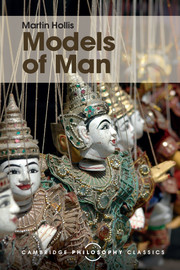2 - Nature and nurture
from Plastic Man
Published online by Cambridge University Press: 05 November 2015
Summary
‘You can't expect a boy to be vicious till he's been to a good school’, remarks one of Saki's characters. As one good school insists, ‘Manners Makyth Man’ – not social polish but mores, codes, norms, institutions, without which there is no individuality. Yet the same good school has a postern gate which used to be the discreet exit for boys expelled. Carved above it is a tag from Horace, ‘Naturam expellas furca, usque recurret’ – you can drive out Nature with a pitchfork but she will be back. The parents may not be amused but the school is relieved of blame. A similar gate and inscription grace the nurture side of the nature vs. nurture dispute. It leads into a certain kind of psychology and its use is voluntary and more frequent. Return is allowed, indeed some social psychologists hold season tickets. We might be tempted to suppose the gate also marks the boundary of belief in Plastic Man. I shall start the chapter by arguing that, although the nature vs. nurture dispute is genuine, it is not about whether men are plastic.
Nurture is the clearer idea. Durkheim puts this pole starkly enough at the end of the Rules, where he writes, ‘Individual natures are merely the indeterminate material which the social factor moulds and transforms.’ Individual conduct is produced by social facts, external to each individual and constraining him. The constraints are mostly internalised, to be sure, and society could not function, were they not. But internalising is a process of being moulded, not an act of rational assent by the inner man. For any inward state which explains action there is always an external and constraining fact to explain the origin of the inner state.
At the other pole J. S. Mill asserts that ‘human beings in society have no properties but those which are derived from and may be resolved into the laws of the individual man’. (System of Logic VI. 7. i.) Social behaviour, norms and institutions derive from the ‘thoughts, emotions, volitions and sensations’ of individuals. Nurture is the process of placing men so that their characters develop. Development follows ‘the laws of the Formation of Character’, which are in turn corollaries of the universal laws of human nature grounding all the social sciences.
- Type
- Chapter
- Information
- Models of ManPhilosophical Thoughts on Social Action, pp. 18 - 32Publisher: Cambridge University PressPrint publication year: 2015

